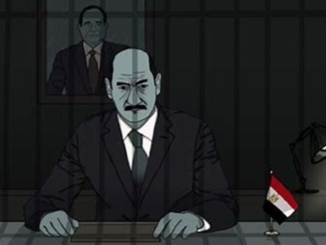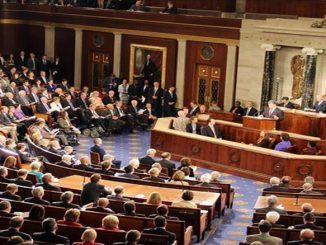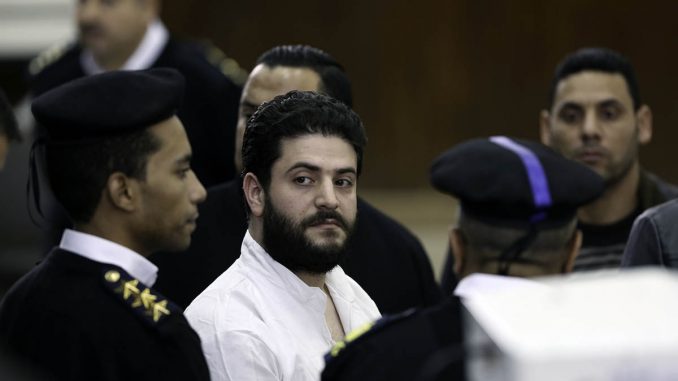
British lawyers say Osama Morsi, the imprisoned son of late Egyptian President Mohamed Morsi, who has been languishing in an Egyptian prison since December 2016, faces ‘imminent danger’. Osama Morsi, a lawyer, represented his late father Mohamed Morsi prior to his arrest in 2016.
The legal team representing the family of former Egyptian President Mohamed Morsi has expressed grave concern regarding the safety of his imprisoned son, warning he’s at risk of being “poisoned”, according to the Middle East Eye.
Commenting on these concerns, Yehia Hamed, Minister of Investment in Dr. Hesham Qandil’s government, said on his Twitter account, “Osama Morsi, Son of late president Morsi, is facing serious danger in prison, his lawyer says he might be poisoned. Osama started a hunger strike, he has been detained for 3 yrs in solitary confinment, w/ zero access to family, lawyers or medications.”
In a statement to MEE on Tuesday, legal firm Guernica 37 International Justice Chambers said that Osama Morsi faces “a very credible risk of being poisoned in prison and that he is being subjected to the same dangers to his life as his late father”.
Osama was arrested on 16 December 2016 on charges of “planning to organize protests”, in what his family’s legal team have described as a spurious allegation.
“The authorities have refused to receive any complaints and refused to take any steps to protect his rights and his life is now believed to be in imminent danger,” a letter from the legal team read.
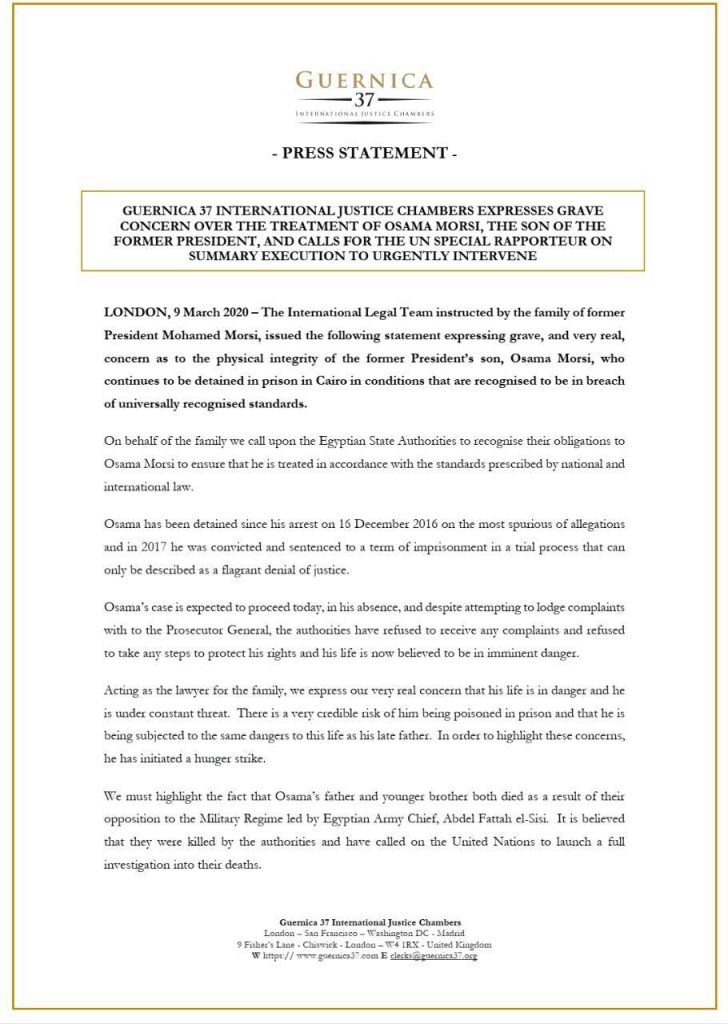
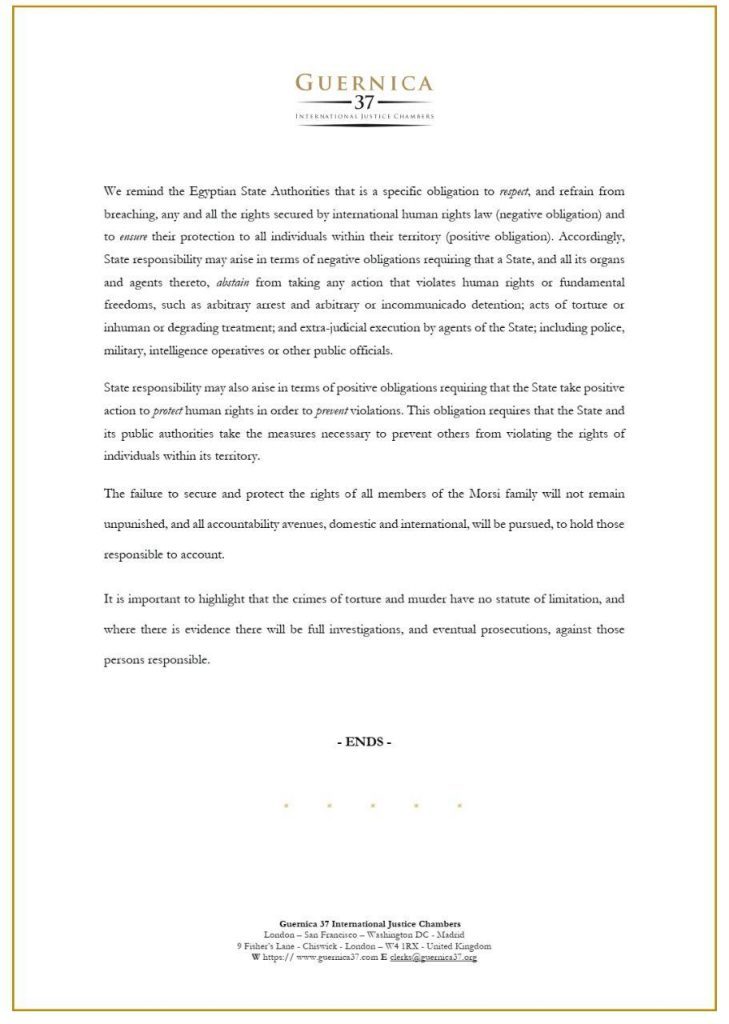
Osama’s father, Mohamed Morsi, was elected as Egypt’s first-ever democratically elected president in 2012, after a popular uprising overthrew longtime leader Hosni Mubarak.
But, he was later deposed and then jailed in a military coup by his then-defense minister, Abdel Fattah el-Sisi.
Commenting on Osama Morsi’s situation in prison, Sarah Leah Whitson, the managing director for research and policy at the Quincy Institute for Responsible Statecraft and formerly ED of MENA Division at Human Rights Watch, wrote on her Twitter account: “It wasn’t enough for Egypt govt to keep President Morsi in deplorable conditions of detention, deprived of medicines, leading to his death. Now they are doing the same to his son, imprisoned since 2016 for “organizing protests”,” she tweeted.
Morsi died in June 2019 after collapsing in a trial over charges of espionage.
One account of Morsi’s final moments, obtained by MEE – details of which have been corroborated by other reports of the court session – described people banging on cages, shouting for security and screaming following Morsi’s collapse.
Osama’s younger brother Abdullah died months later of allegedly a “heart attack”.
“We must highlight the fact that Osama’s father and younger brother both died as a result of their opposition to the military regime led by Egyptian army chief, Abdel Fattah el-Sisi,” the lawyers said.
Toby Cadman, one of the family’s lawyer, said on Tuesday that Osama had started a hunger strike to highlight his precarious situation.
“He started a hunger strike because he is very concerned that they are trying to poison him by prison food,” he said.
“He is being isolated from family and lawyers. There is a realistic fear that they are trying to kill him,” he added.
In November, UN independent experts said the detention conditions of Morsi, who had been imprisoned since 2013, may have directly led to his death in a Cairo courtroom on 17 June last year.
A panel of UN experts – including Agnes Callamard, special rapporteur on extrajudicial, summary or arbitrary executions – and the UN Working Group on Arbitrary Detention concluded that Morsi was held under “brutal” conditions. Egyptian state television announced that Morsi had collapsed during the court hearing on espionage charges, and later died suddenly, reportedly of a “heart attack”.

